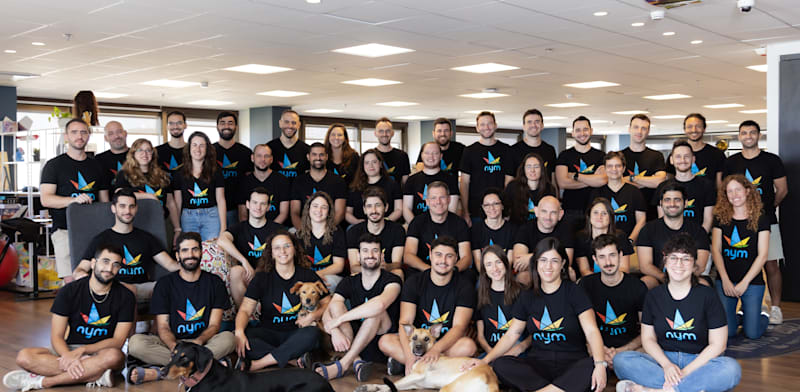In today’s knowledge-driven economy, intellectual property represents the cornerstone of startup value creation, with IP-intensive companies generating 38% higher revenue per employee and commanding significantly higher valuations during funding rounds. For startups, particularly in technology, biotech, and innovation-driven sectors, intellectual property management services have become essential for protecting competitive advantages, attracting investors, and building sustainable business models.
The global intellectual property market has grown to over $5 trillion annually, with startups increasingly recognizing that proper IP management can mean the difference between market leadership and obsolescence. Modern investors routinely conduct thorough IP due diligence, often considering patent portfolios and trademark protection as critical factors in investment decisions alongside traditional financial metrics.
However, navigating the complex landscape of patents, trademarks, copyrights, and trade secrets requires specialized expertise that most startup founders lack. Professional IP management services provide startups with the strategic guidance, legal protection, and portfolio optimization needed to transform innovative ideas into valuable, defensible business assets.
The Strategic Importance of IP for Startups
Intellectual property serves multiple critical functions beyond simple legal protection, forming the foundation of competitive strategy and business value creation:
Competitive Advantage and Market Protection
Patent protection creates temporary monopolies that allow startups to establish market positions without immediate competition from copycat products or services. This exclusivity period is crucial for recovering R&D investments and building market share before competitors can legally offer similar solutions.
Trademark protection safeguards brand identity and customer recognition, preventing competitors from confusing consumers or diluting brand value. Strong trademark portfolios become increasingly valuable as startups scale and expand into new markets or geographies.
Trade secret management protects proprietary processes, algorithms, and know-how that provide competitive advantages but may not qualify for patent protection or benefit from secrecy rather than disclosure.
Investment and Funding Advantages
Investor confidence increases significantly when startups demonstrate comprehensive IP protection and strategic portfolio management. Sophisticated investors understand that strong IP positions reduce competitive risks and increase exit opportunities.
Valuation premiums for IP-protected startups can range from 20-40% higher than comparable companies without robust IP portfolios. Patents and trademarks represent tangible assets that contribute directly to company valuation during funding rounds and acquisitions.
Due diligence preparation becomes streamlined when startups maintain organized IP portfolios with clear ownership documentation, prosecution histories, and strategic development plans that satisfy investor requirements.
Revenue Generation Opportunities
Licensing revenue from IP portfolios can provide additional income streams while maintaining core business focus. Strategic licensing allows startups to monetize innovations in adjacent markets without direct operational involvement.
Cross-licensing agreements with industry partners can provide access to complementary technologies while sharing IP risks and development costs across multiple companies.
Defensive strategies using patent portfolios protect against litigation risks and provide negotiating leverage in competitive disputes or partnership discussions.
Core IP Management Services for Startups
Comprehensive IP management encompasses multiple specialized services tailored to startup needs and growth stages:
Patent Strategy and Prosecution
Patent landscape analysis identifies existing patents in relevant technology areas, competitive threats, and opportunities for differentiation. This analysis informs R&D directions and helps avoid inadvertent infringement while identifying potential licensing opportunities.
Invention disclosure management establishes systematic processes for identifying, documenting, and evaluating potentially patentable innovations within startup operations. Regular invention harvesting ensures that valuable IP is captured and protected rather than lost or inadvertently disclosed.
Patent drafting and prosecution requires specialized technical and legal expertise to create strong, enforceable patents that withstand scrutiny and provide meaningful protection. Professional patent attorneys understand examination processes and craft applications that maximize protection scope and enforceability.
International filing strategies help startups prioritize patent filings across multiple jurisdictions based on market importance, competitive landscapes, and budget constraints. Strategic international protection ensures global market access while optimizing prosecution costs.
Trademark and Brand Protection
Trademark clearance searches identify potential conflicts before brand launches, preventing costly rebranding efforts and legal disputes. Comprehensive searches cover registered trademarks, pending applications, and common law rights across relevant jurisdictions.
Brand portfolio development creates comprehensive protection strategies covering company names, product brands, logos, taglines, and other distinctive marks that build customer recognition and market value.
International trademark registration through Madrid Protocol filings and direct national applications ensures brand protection in target markets while managing costs and administrative complexity.
Trademark monitoring and enforcement detect potential infringements and unauthorized uses, enabling swift action to protect brand integrity and prevent dilution or consumer confusion.
Copyright and Digital Asset Protection
Software copyright management protects source code, algorithms, and digital content through proper registration and documentation. While copyright protection is automatic, registration provides enhanced enforcement rights and statutory damages.
Open source compliance ensures that startup software development adheres to open source license requirements while protecting proprietary code from inadvertent disclosure or contamination.
Digital content protection covers websites, marketing materials, documentation, and other creative works that contribute to startup brand identity and competitive positioning.
Trade Secret Protection
Trade secret identification and classification helps startups recognize and protect valuable confidential information including customer lists, pricing strategies, manufacturing processes, and proprietary algorithms.
Confidentiality programs establish comprehensive protection protocols including employee agreements, contractor provisions, visitor restrictions, and digital security measures that maintain trade secret status.
Employee mobility management addresses IP ownership issues when employees join from competitors or leave for other opportunities, ensuring that trade secrets remain protected while respecting legitimate employee rights.
Industry-Specific IP Considerations
Different startup sectors require specialized IP strategies tailored to their unique challenges and opportunities:
Technology and Software Startups
Software patent strategy balances patent protection for innovative algorithms and processes with the rapid development cycles typical of software companies. Strategic filing focuses on core differentiating technologies rather than incremental improvements.
API and interface protection covers user interfaces, application programming interfaces, and system architectures that provide competitive advantages and integration barriers for competitors.
Cloud and SaaS IP management addresses the unique challenges of protecting software-as-a-service innovations including method patents, system architectures, and user experience innovations.
Biotech and Pharmaceutical Startups
Composition of matter patents protect novel compounds, formulations, and biological materials that form the foundation of biotech innovations. These patents often provide the strongest and most valuable protection in pharmaceutical development.
Method patents cover therapeutic uses, diagnostic procedures, and manufacturing processes that complement composition patents and extend protection timelines through different patent types.
Regulatory data protection leverages regulatory exclusivity periods and data protection to complement patent protection and extend market exclusivity beyond traditional patent terms.
Hardware and Manufacturing Startups
Design patent protection covers ornamental and aesthetic aspects of products that contribute to market appeal and brand recognition. Design patents often provide faster, less expensive protection than utility patents.
Utility patent portfolios protect functional innovations in products, manufacturing processes, and system architectures that provide competitive advantages and manufacturing barriers.
Trade dress protection covers distinctive packaging, product configurations, and overall brand presentations that contribute to market recognition and consumer preference.
IP Portfolio Management and Optimization
Effective IP management requires ongoing portfolio optimization and strategic decision-making:
Portfolio Assessment and Strategy
Regular portfolio reviews evaluate patent and trademark portfolios for continued relevance, competitive value, and maintenance cost justification. Strategic pruning eliminates low-value assets while focusing resources on high-impact protection.
Competitive intelligence monitoring tracks competitor patent filings, trademark applications, and IP strategies to identify threats, opportunities, and market trends that inform strategic decisions.
Technology roadmap alignment ensures that IP protection strategies align with business development plans and product roadmaps, anticipating future needs and market evolution.
Cost Management and Budgeting
Prioritized filing strategies balance comprehensive protection with budget constraints by focusing initial filings on core technologies and highest-value markets while planning future expansion based on business success.
Government incentive utilization leverages available programs including patent fee reductions for small entities, R&D tax credits, and innovation grants that offset IP development costs.
Maintenance decision frameworks provide systematic approaches for evaluating patent renewal decisions based on ongoing business relevance, competitive value, and cost-benefit analysis.
Monetization and Licensing
Licensing opportunity identification analyzes patent portfolios for technologies that could generate revenue through licensing while maintaining core business focus and competitive advantages.
Partnership and collaboration strategies leverage IP assets to attract strategic partners, joint venture opportunities, and collaborative development arrangements that accelerate growth.
Exit preparation ensures that IP portfolios are properly organized, documented, and valued for potential acquisitions or public offerings, maximizing transaction value and minimizing due diligence complexity.
Technology and Innovation in IP Management
Modern IP management leverages advanced technology for improved efficiency and strategic insight:
AI-Powered IP Analytics
Patent landscape mapping uses artificial intelligence to analyze large patent databases, identify innovation trends, and reveal competitive opportunities that would be impossible to detect through manual analysis.
Prior art searching employs machine learning algorithms to improve search accuracy and completeness while reducing time and costs associated with patentability analysis and competitive intelligence.
IP portfolio optimization tools analyze portfolio performance, identify redundancies, and recommend strategic adjustments based on business objectives and competitive dynamics.
Digital IP Management Platforms
Centralized IP databases provide comprehensive portfolio management including invention disclosure tracking, prosecution status monitoring, and maintenance deadline management across multiple jurisdictions.
Workflow automation streamlines routine IP management tasks including deadline monitoring, renewal processing, and document management while ensuring compliance with regulatory requirements.
Integration capabilities connect IP management systems with business operations, R&D management, and financial systems to provide holistic views of innovation activities and IP value creation.
Building IP-Aware Company Culture
Successful IP management requires organizational commitment and employee engagement:
Employee Education and Engagement
IP awareness training helps employees understand the importance of intellectual property, recognize potentially patentable innovations, and follow proper disclosure procedures that protect company interests.
Invention incentive programs encourage employee innovation and proper IP disclosure through recognition, financial rewards, and career advancement opportunities tied to IP creation and protection.
Confidentiality and security protocols ensure that all employees understand their responsibilities for protecting trade secrets and confidential information while enabling productive collaboration and innovation.
Integration with Business Operations
R&D IP coordination ensures that research and development activities consider patentability and competitive implications from project inception rather than as afterthoughts.
Marketing and brand alignment coordinates trademark protection with marketing strategies and brand development to ensure comprehensive protection of customer-facing assets.
Partnership IP considerations address intellectual property issues in vendor relationships, joint ventures, and strategic partnerships to prevent conflicts and protect valuable assets.
Conclusion: Strategic IP Management for Startup Success
Intellectual property management has evolved from a defensive legal necessity to a strategic business function that drives value creation, competitive advantage, and investor confidence. Startups that invest early in comprehensive IP strategies position themselves for sustainable growth, successful fundraising, and attractive exit opportunities.
The complexity of modern IP landscapes requires professional expertise and systematic management approaches that balance protection breadth with budget constraints while aligning with business objectives and market realities. By leveraging specialized IP management services, startups can transform innovative ideas into valuable, defensible assets that support long-term business success.
As global competition intensifies and innovation cycles accelerate, the startups that recognize intellectual property as a strategic asset rather than a compliance burden will enjoy significant advantages in building market positions, attracting investment, and achieving successful outcomes for all stakeholders.





